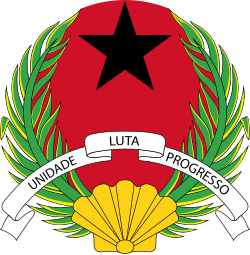| | ||||||||||||||||||||||||||||||||||||||||||
| ||||||||||||||||||||||||||||||||||||||||||
All 102 seats in the National People's Assembly 52 seats needed for a majority | ||||||||||||||||||||||||||||||||||||||||||
| Turnout | 79.57% ( | |||||||||||||||||||||||||||||||||||||||||
|---|---|---|---|---|---|---|---|---|---|---|---|---|---|---|---|---|---|---|---|---|---|---|---|---|---|---|---|---|---|---|---|---|---|---|---|---|---|---|---|---|---|---|
This lists parties that won seats. See the complete results below.
| ||||||||||||||||||||||||||||||||||||||||||
 |
|---|
Snap parliamentary elections were held in Guinea-Bissau on 4 June 2023. [1] Incumbent president Umaro Sissoco Embalo dissolved the parliament on 16 May 2022, accusing deputies of corruption and "unresolvable" differences between the National People's Assembly and other government branches. [2]
Contents
The result was a victory for the opposition coalition Inclusive Alliance Platform – Terra Ranka led by the African Party for the Independence of Guinea and Cape Verde, which won 54 of the 102 seats. [3]

